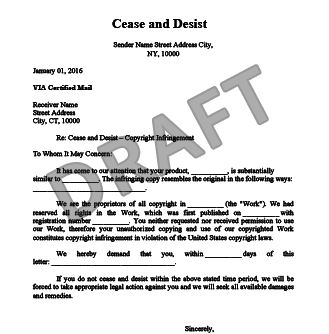


Not a Regular Cease-and-Desist, A Cool Cease-and-Desist
From The Atlantic:
Phrases that are not often used to describe a cease-and-desist letter: “the best,”“hilarious,” “cool,” “perfect,” “super classy.”
And yet that is exactly the praise that Netflix’s lawyers received this week, from a variety of media outlets, for going about that most lawyerly of tasks: telling people they aren’t allowed to do a thing. In this case, the people were the Chicago residents Danny and Doug Marks, and the thing was operating a bar whose theme was Stranger Things, a hit Netflix show set in the 1980s.
Netflix was applauded because its legal team, or perhaps its marketing department, peppered its cease-and-desist letter with several knowing referencesto the program (“Look, I don’t want you to think I’m a total wastoid … ”) and—even more strangely for the form—what seemed like actual politeness. “You’re obviously creative types, so I’m sure you can appreciate that it’s important to us to have a say in how our fans encounter the worlds we build,” a Netflix senior counsel wrote. (The company did not respond to an interview request.)
This is where the emphasis on authenticity in corporate branding has led to in 2017: Even cease-and-desist letters, traditionally one of the sternest, most threatening forms of interpersonal communication, are being suffused with warmth and, as branding experts like to call it, “voice.” Brand-building can happen anywhere: “That’s the way companies should be thinking about literally everything they do, and legal is no different than customer service,” says Kevin Lane Keller, a professor of marketing at Dartmouth’s Tuck School of Business.
It has typically been the responses to cease-and-desist letters—not the letters themselves—that have inspired the most creativity, as when a Philadelphia-based chain recently got a letter about its “Chick Philly” sandwich from Chick-fil-A’s lawyers and responded by serving “Cease and Desist” sandwiches in wrappers with excerpts from the letter printed on them.
For the rest, click here.